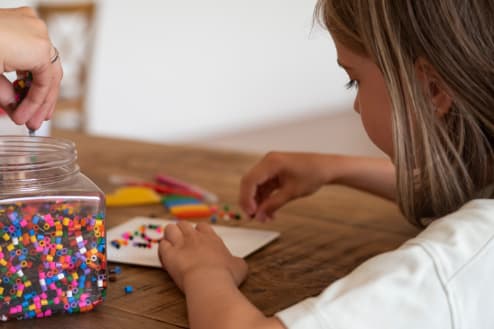In today’s world, a preschooler cannot go to the first grade and start learning “with a clean slate. Parents need to “develop, train, inform” the child in order to meet the requirements for school. But the saturated flow of information directed at the preschooler often does not provide the necessary knowledge, skills, and abilities that will be useful to the child in the first grade.
There are practically no children who are absolutely ready or not ready for school. Each child perceives the new social position of a schoolboy in his or her own way, not like others. You can only talk about the degree of readiness or unreadiness for school life and the new social status.
Painless adaptation to the new social conditions is possible if the child is able to act together with others in children’s society, is able to give in, has a sense of camaraderie, and is willing to make the effort to do what the teacher requires. The future schoolchild should be able to defend his point of view, and at the same time listen to the opinion of others. By the end of preschool age the child is able to set a goal, make a decision, outline a plan of action, execute, overcome obstacles and evaluate the result.
Existing programs, their mastering will demand from the child an ability to compare, analyze, generalize, draw independent conclusions, require sufficiently developed cognitive processes, but a sufficiently high level of cognitive activity the preschooler reaches only if training is directed to active development of thinking processes.
What should parents of future first graders pay attention to?
Does the child have a desire to learn,
The correct pronunciation of all speech sounds,
The grammatically correct form of speech,
Sufficient vocabulary,
The development of coherent speech,
The ability to communicate with children and adults,
The ability to argue their point of view,
The ability to do tasks independently.
For a child who goes to school, his whole life changes completely – now it is subordinated to the schedule of lessons, which means that the child has to get used to the new rules and a different daily routine. To make it easier for the child to get used to the changes, try from the very beginning to structure the day of your first grader according to the new schedule and not to deviate from it.
Put your child to bed on time,
Start lessons with written assignments, then move on to oral assignments,
Rotate classes and take 10-15 minute breaks,
Finish studying 1.5-2 hours before going to bed,
Encourage your baby more often,
Do not take away from the child legitimate days of summer vacation – it is important that the child sat at his desk full of energy, and not squeezed like a lemon.
In general, just talk to your child more often, read books together, learn poems, draw and make applications. Use the remaining time usefully and then the first grade will be a pleasant and long-awaited event for your child!

 Martinez Tracy
Martinez Tracy


